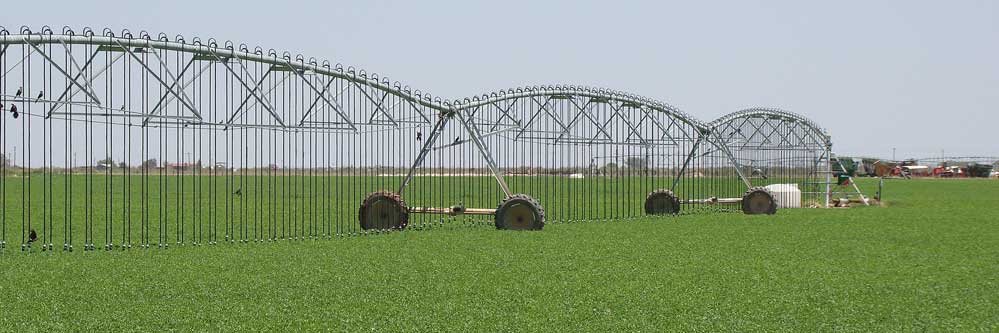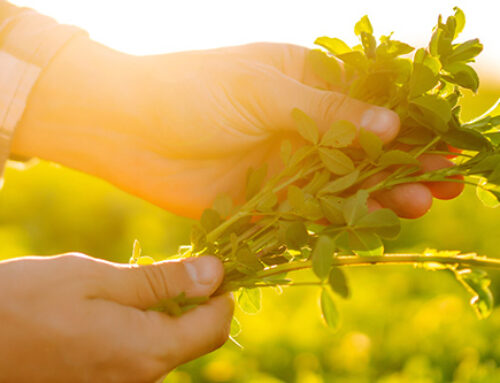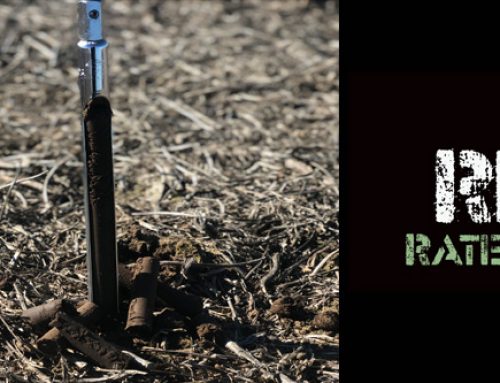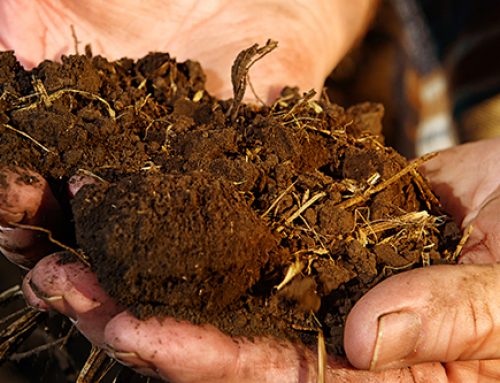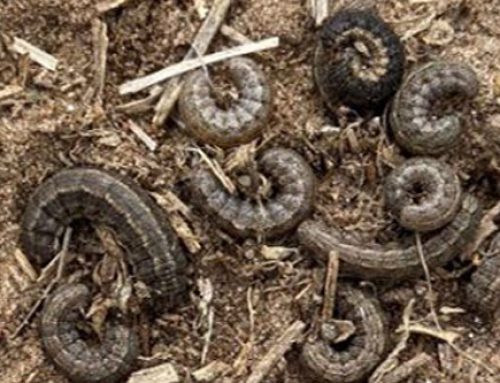Alfalfa production in Southwest Kansas is a profitable crop. Initial seed costs are comparable with corn, but when amortized out for a five to seven year stand, costs are around $20 per acre per year. Furthermore, since alfalfa is a legume crop, nitrogen fertilizer is not required for production, assuming seed was inoculated and nodules are healthy and productive. This article will focus on the fertility requirements of alfalfa production and some broad overviews concerning herbicides.
Alfalfa has a symbiotic relationship with the bacteria rhizobia. A symbiotic relationship is beneficial to both the bacteria and the alfalfa plant. The bacteria receive carbohydrates in the form of sugars produced by photosynthesis of the leaves and provides ammonia produced by an enzyme in the process that converts atmospheric nitrogen to NH3. Due to this relationship, the addition of nitrogen containing fertilizers is not required for maximum production.
It is estimated that a six ton per acre alfalfa crop will need approximately 318 pounds of nitrogen per acre. This same crop will need 72 pounds of phosphorus per acre in the form of P2O5 and 300 pounds of potassium per acre in the form of K2O. The crop will use about 30 pounds per acre of both Sulfur and Magnesium.
Due to the high demand for primary nutrients, many farmers utilize manure if it is available. They will add 10 to 20 ton per acre of manure on a one to two-year rotation. However, the addition of commercially available potassium fertilizer may be needed, based on soil test results, since alfalfa has a high demand for potassium.
Alfalfa fertility is an important component in the production of alfalfa hay. Crop Quest Agronomists will take soil samples each year to determine the nutrient requirements for the field’s yield goal. Furthermore, manure samples are collected to determine nutrient content in the manure. Then a fertilizer plan is developed.
Weed control in alfalfa requires the use of residual herbicide products. We have concerns with both broadleaf weeds and grasses. Weed species infest alfalfa year round, so in many cases multiple residual herbicides may need to be applied, including during the dormancy period. Roundup Ready varieties have given producers a tool to clean up weed escapes, but glyphosate should not be relied on as a primary weed control strategy.
Crop Quest Agronomists are well qualified to assist farmers in alfalfa production. We can provide growers with the latest information and products currently available on the market. Our network of agronomists has many years of experience to provide our customers with the best information and solutions for their production challenges. Do not hesitate to contact your local Crop Quest Agronomist with questions.
Written by: Elliott Rounds; Ulysses, Kansas
Featured Image by: USDAgov, NRCS pic, flickr.com
